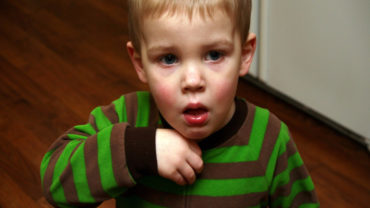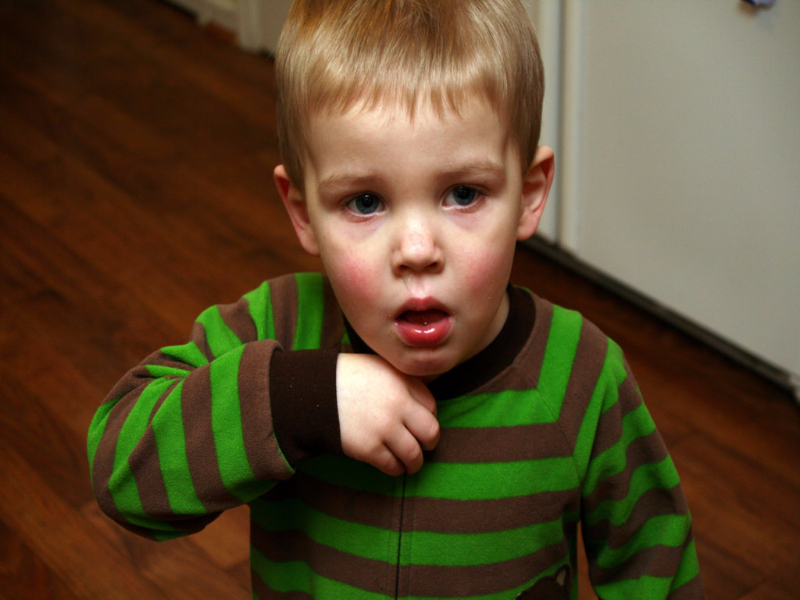Via Child and Youth Health: Bronchitis (‘chest infection’)
Many children, when they get a cold, also develop a cough. The most common cause of coughing is asthma, but the cough may be due to bronchitis.
This can be due to bronchitis, which is when the lining of the trachea and bronchi, (the tubes leading from the throat to the lungs), become reddened and swollen, and there is more mucus. Bronchitis is usually a mild illness in children. It is not possible to prevent bronchitis.
Alert!
Any child who is having difficulty breathing needs medical help as soon as possible.
What is bronchitis?
- Bronchitis is usually caused by a viral infection of the bronchi, causing swelling and more mucus than usual. This causes a cough, and sometimes pain which is felt in the throat or upper chest when the child coughs.
- It can occur as part of many infections such as a cold, flu, whooping cough or measles.
- Children who are exposed to tobacco smoke are more at risk of catching colds and developing bronchitis. The chemicals in tobacco smoke irritate the eyes, nose and air passages.
Signs and symptoms of bronchitis
- A child with bronchitis may have the usual signs of a cold including a runny nose, sore throat and mild fever, and then develop a cough.
- The cough is often dry at first, then moist after a couple of days. A child with a ‘barking cough’ may have croup.
- There may be a slight wheeze and a feeling of shortness of breath. However if a child is very wheezy and short of breath, the problem may be asthma or bronchiolitis in a young child, not bronchitis.
- Children usually recover from bronchitis in 5 to 10 days.
- Some children keep getting attacks of bronchitis or can get chronic (long lasting) bronchitis. This can be due to allergies, someone smoking around them or to other problems in the lungs.
What you can do
- If the child seems unwell, check with a doctor to find out what the problem is. This is urgent if there are breathing problems.
- Bronchitis in children is nearly always due to a virus and antibiotics don’t help.
- Cough and cold medicines should not be given to children under 6 years of age.
- Cough and cold medicines should only be given to children aged 6 to 11 years on the advice of a doctor, pharmacist or nurse practitioner.
- A recent research study showed that for children over 2 years old a single dose of honey in the evening was more effective that a common cough medicine, and more effective than no treatment. Honey should not be given to babies under 1 year old as it may lead to a rare but very serious illness.
- Steam (eg from the bathroom shower or a humidifier) can help the child feel more comfortable, but does not shorten the illness. Be aware of the risk of burns and scalds.
- A child who has bronchitis may not eat as well as normal, but it is important to offer extra drinks. (See the topic ‘Feeling sick’ for more ideas). Older children may like a hot lemon and honey drink.
- Keep your home and car smoke-free.
- If the child does not start to get better within a couple of days, or starts to become sicker, see a doctor.



